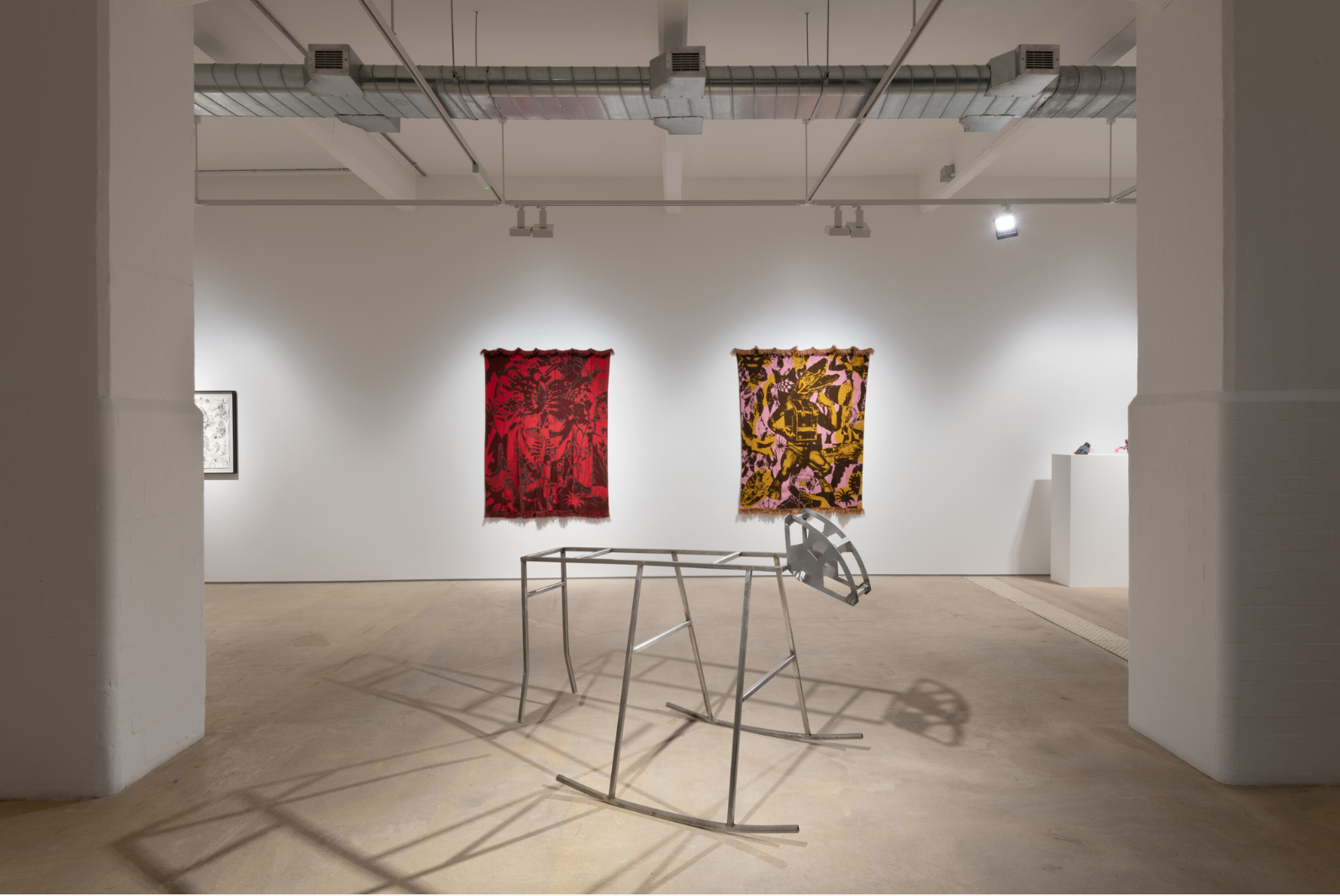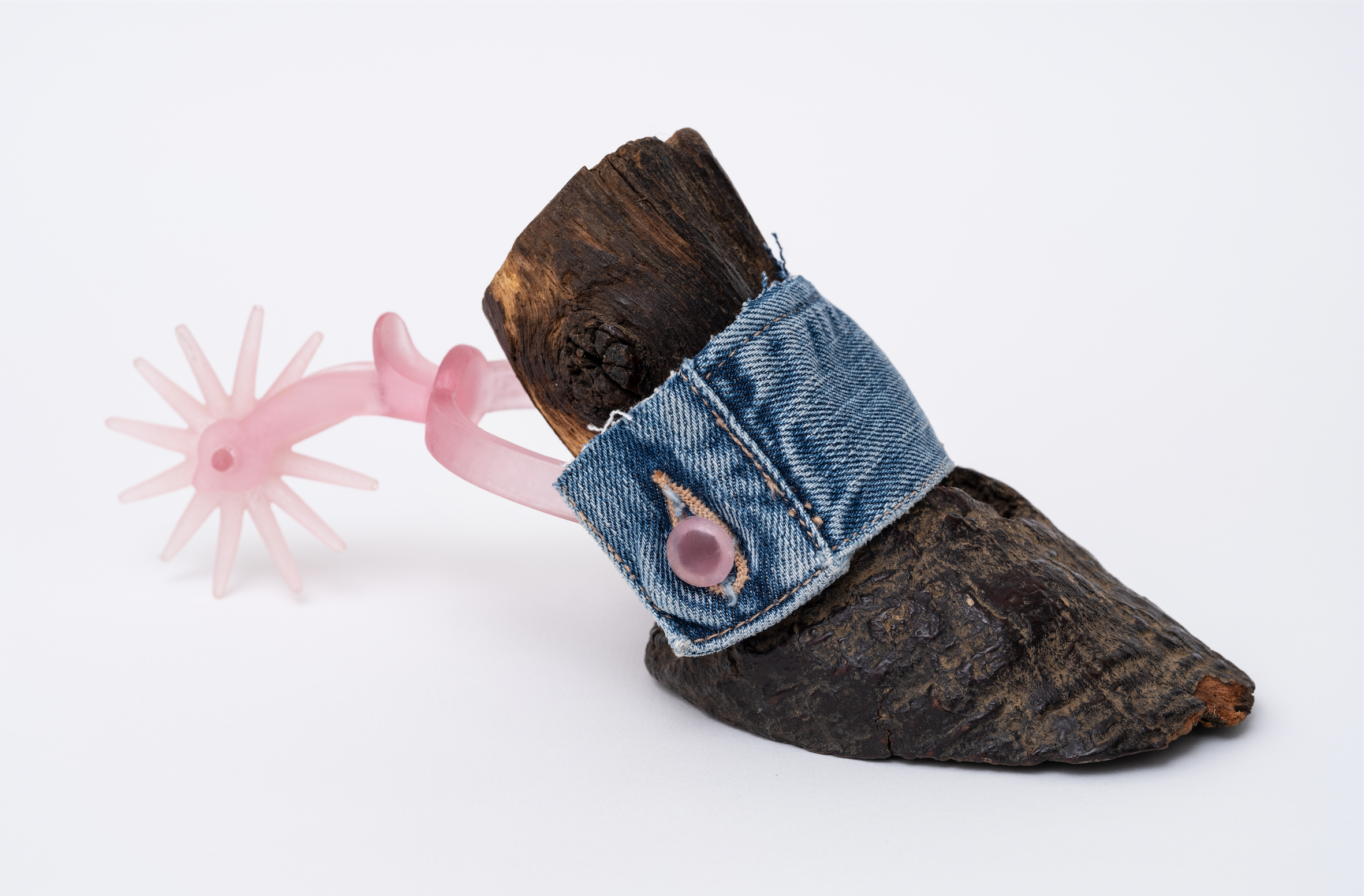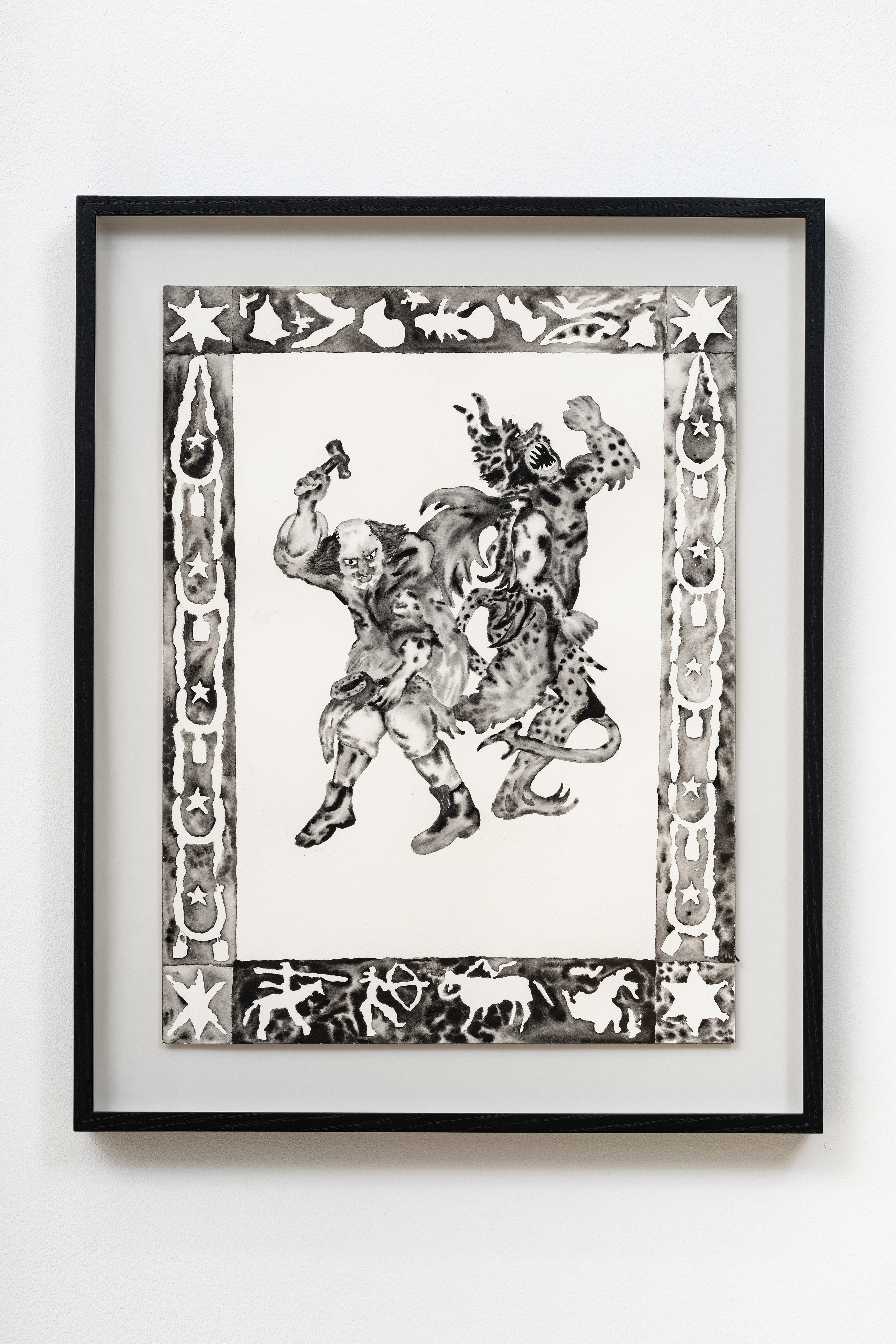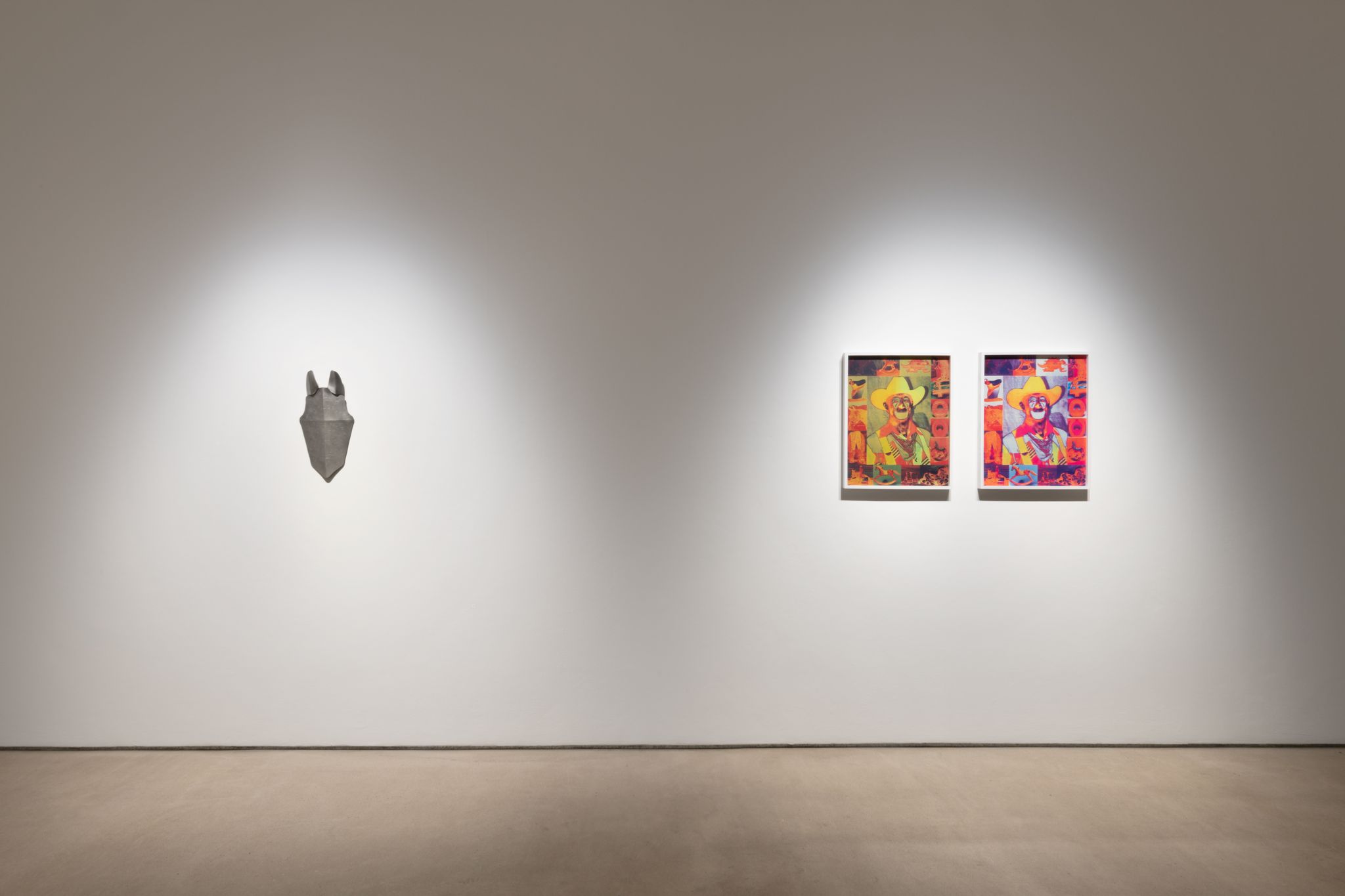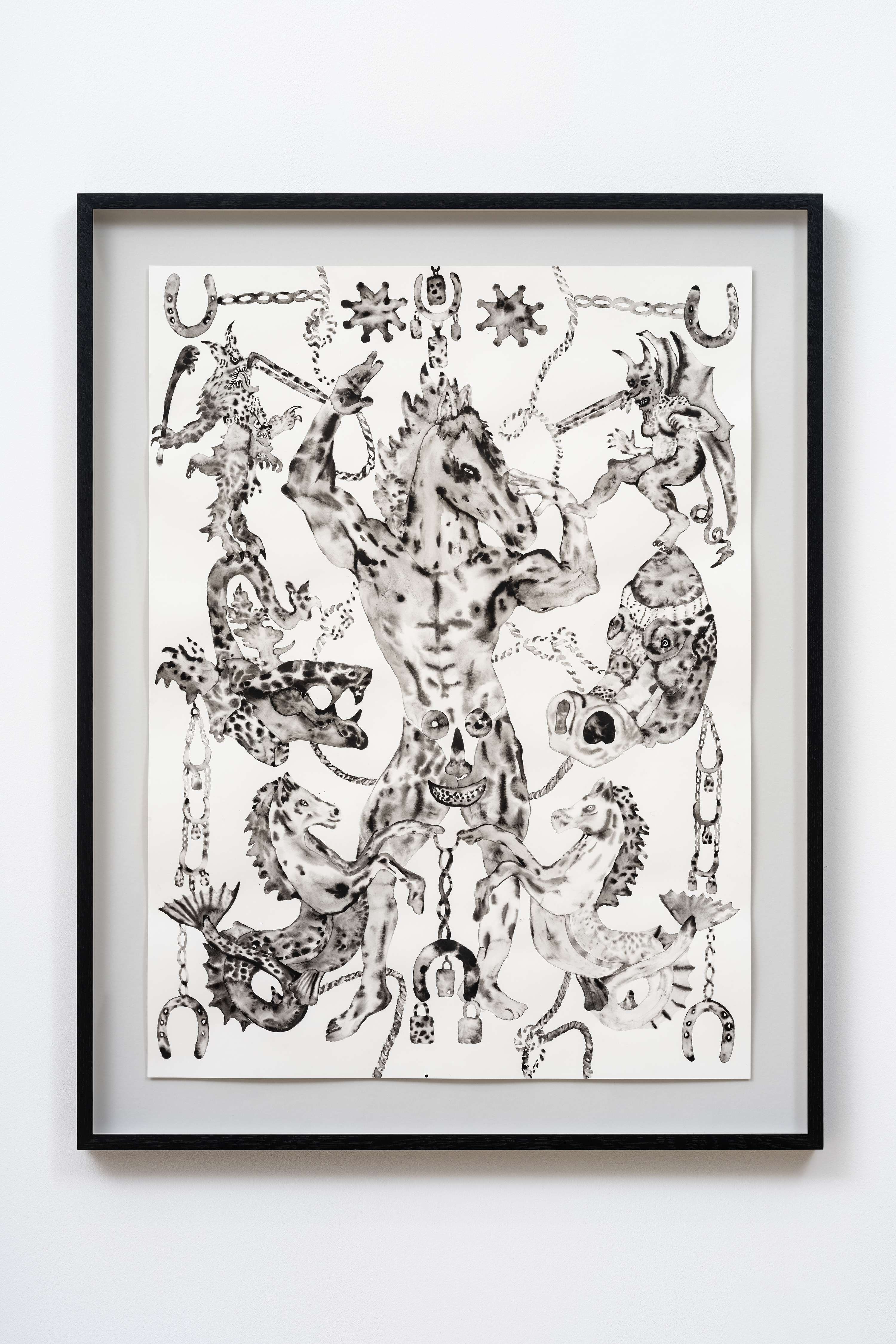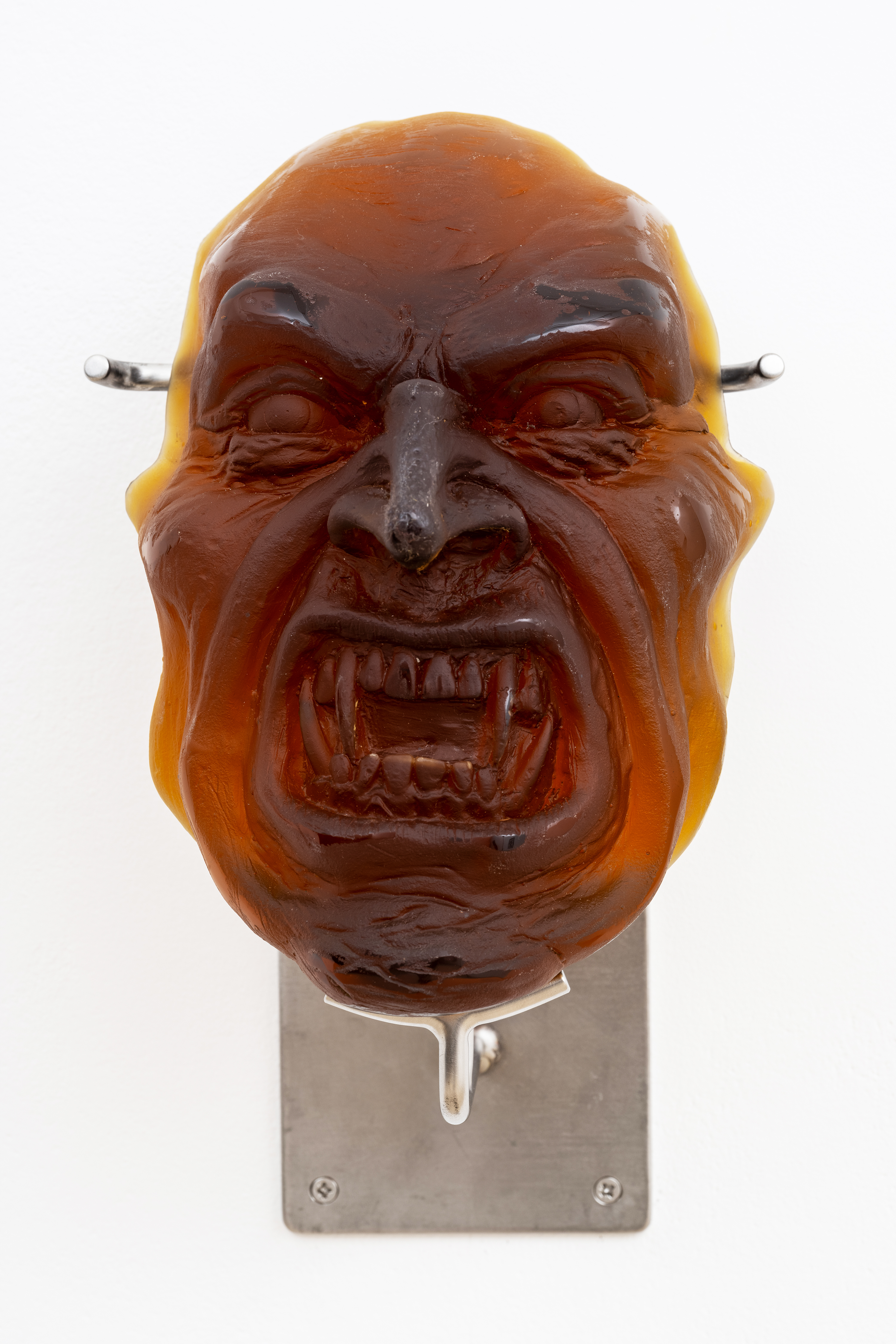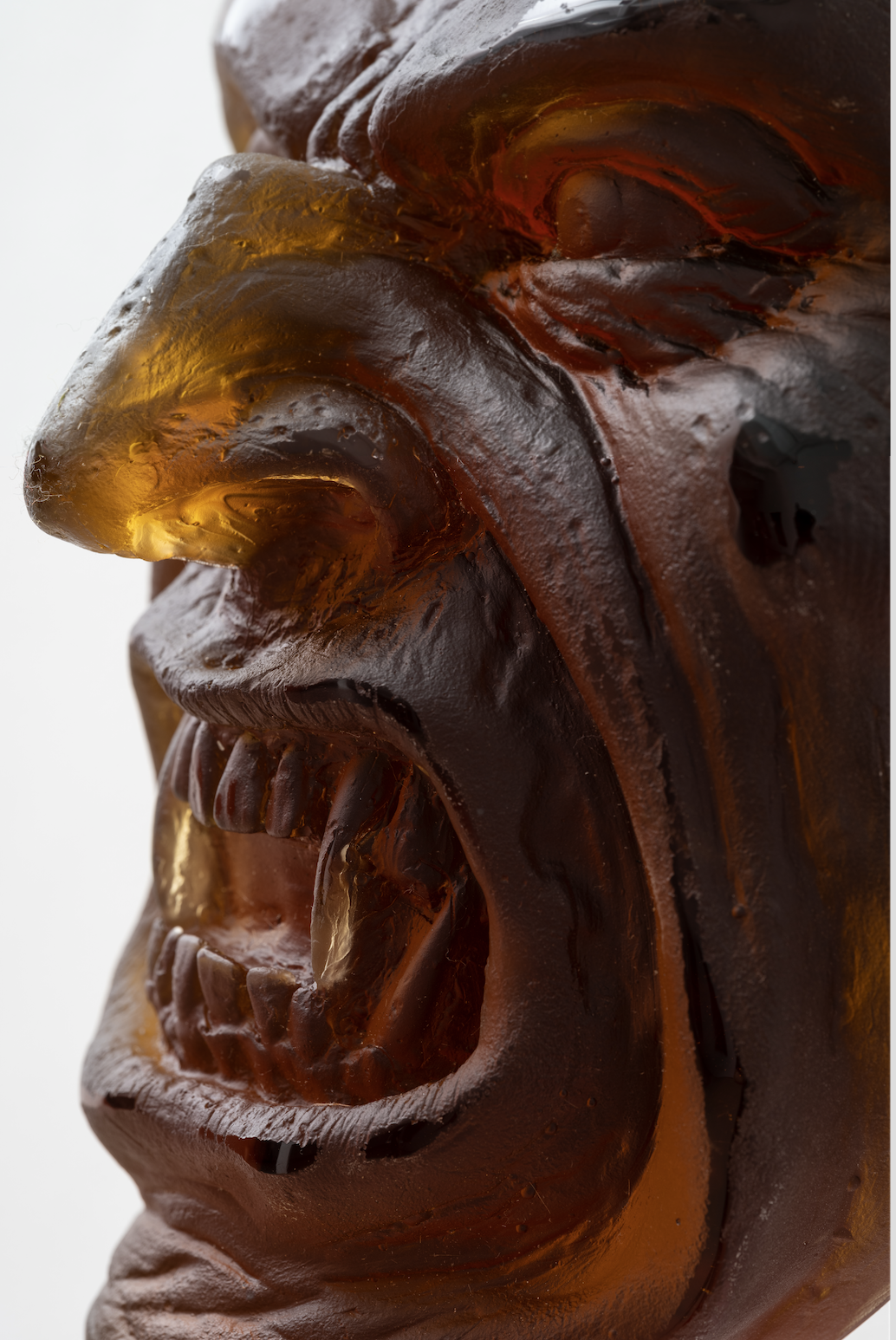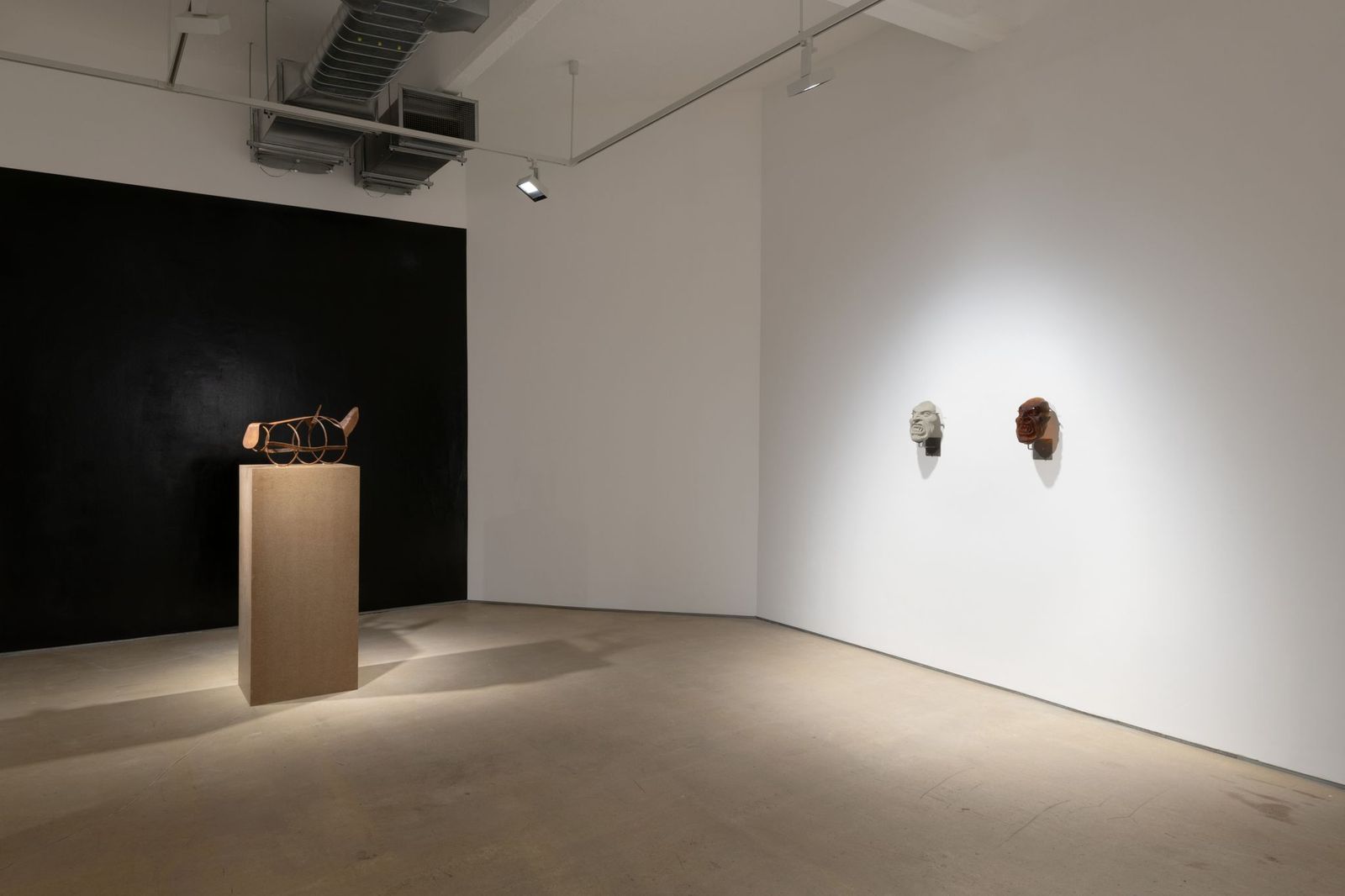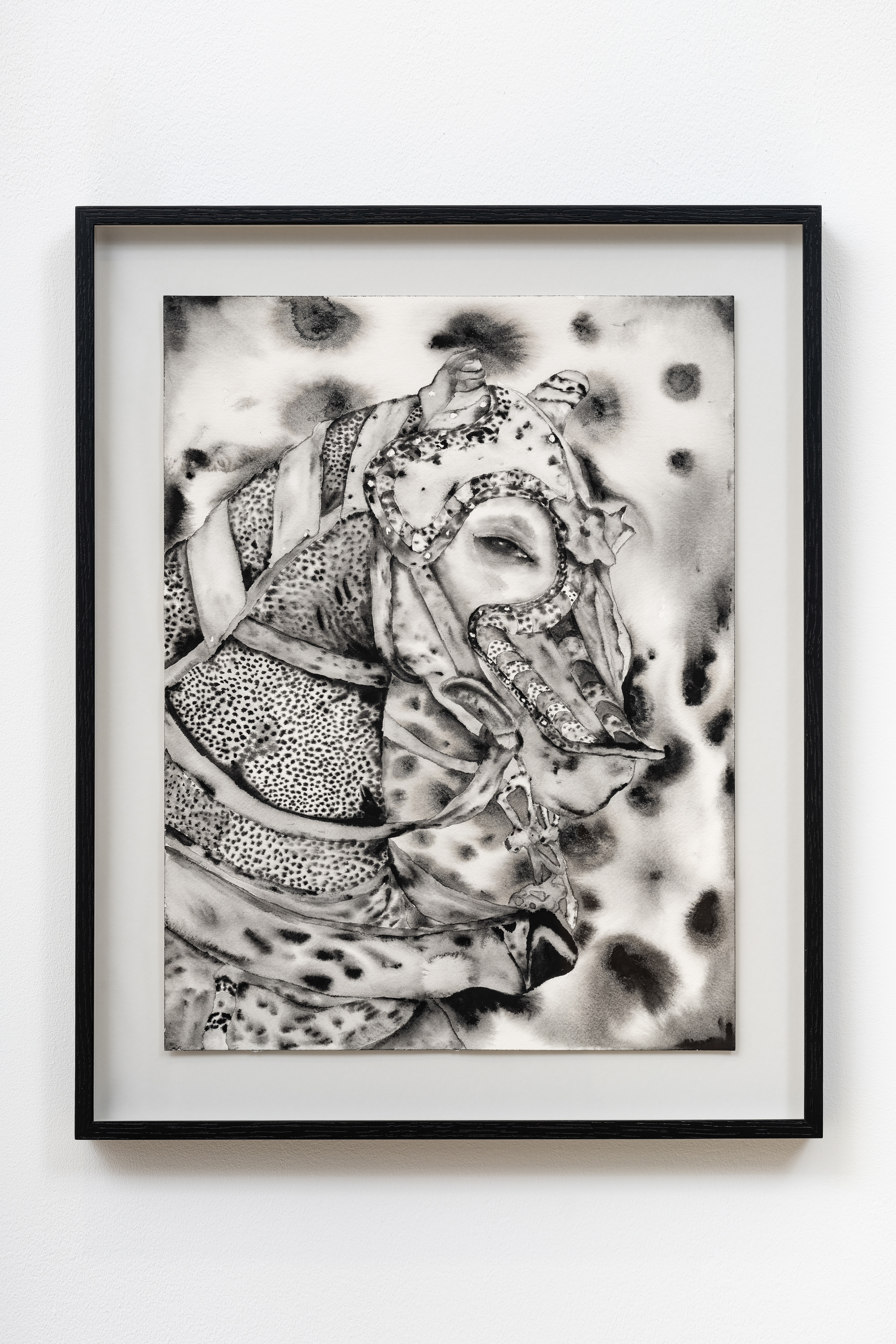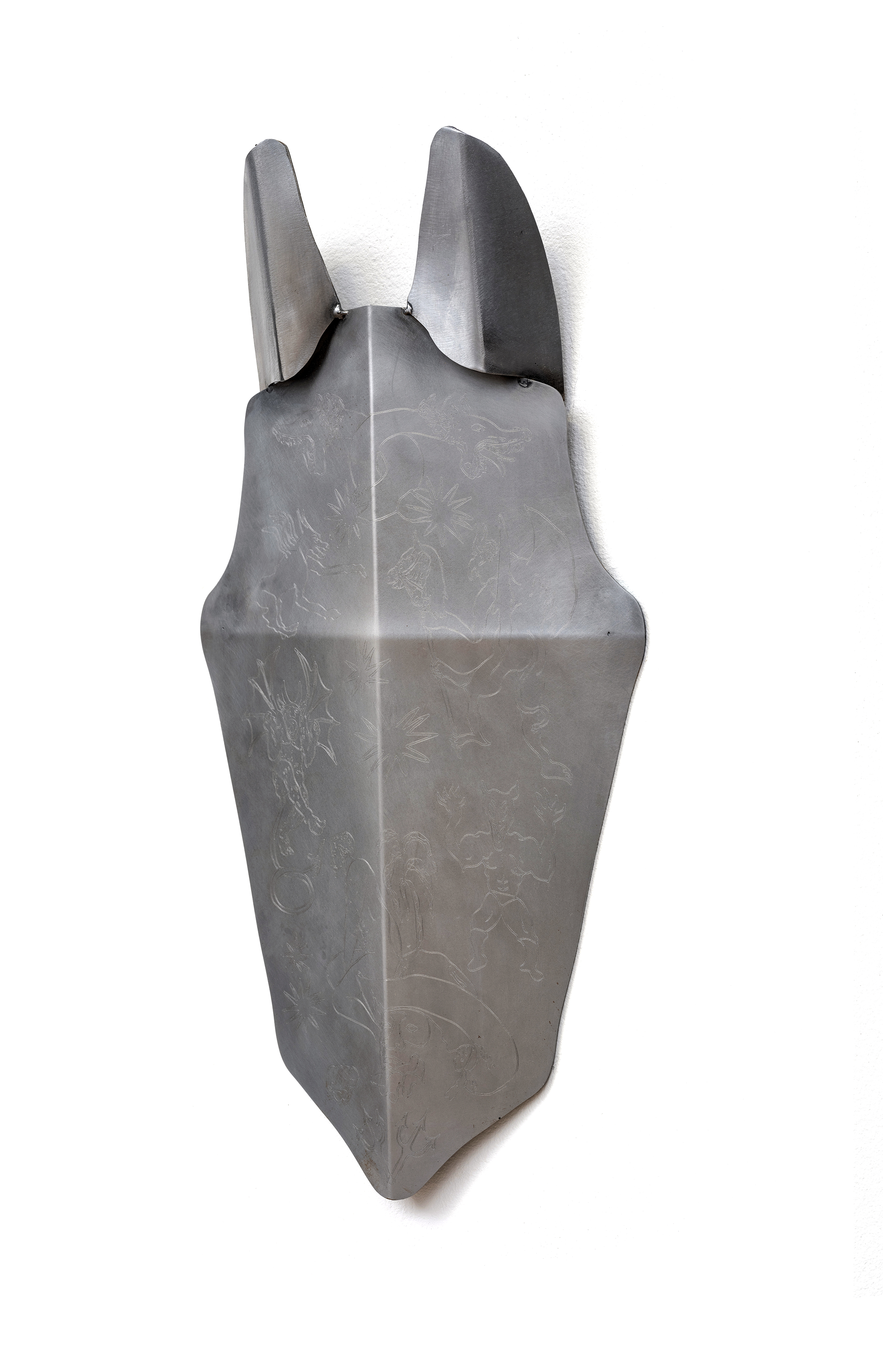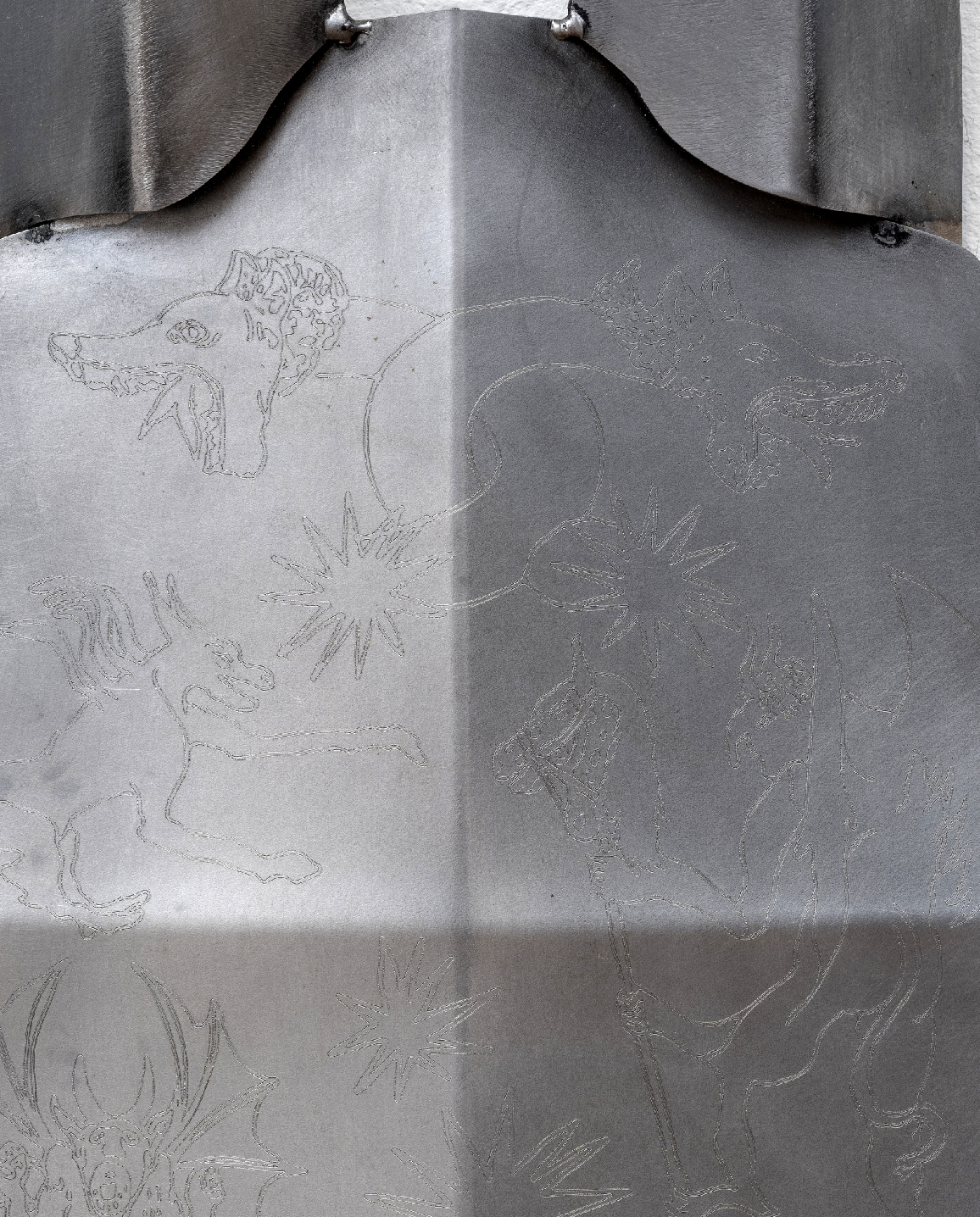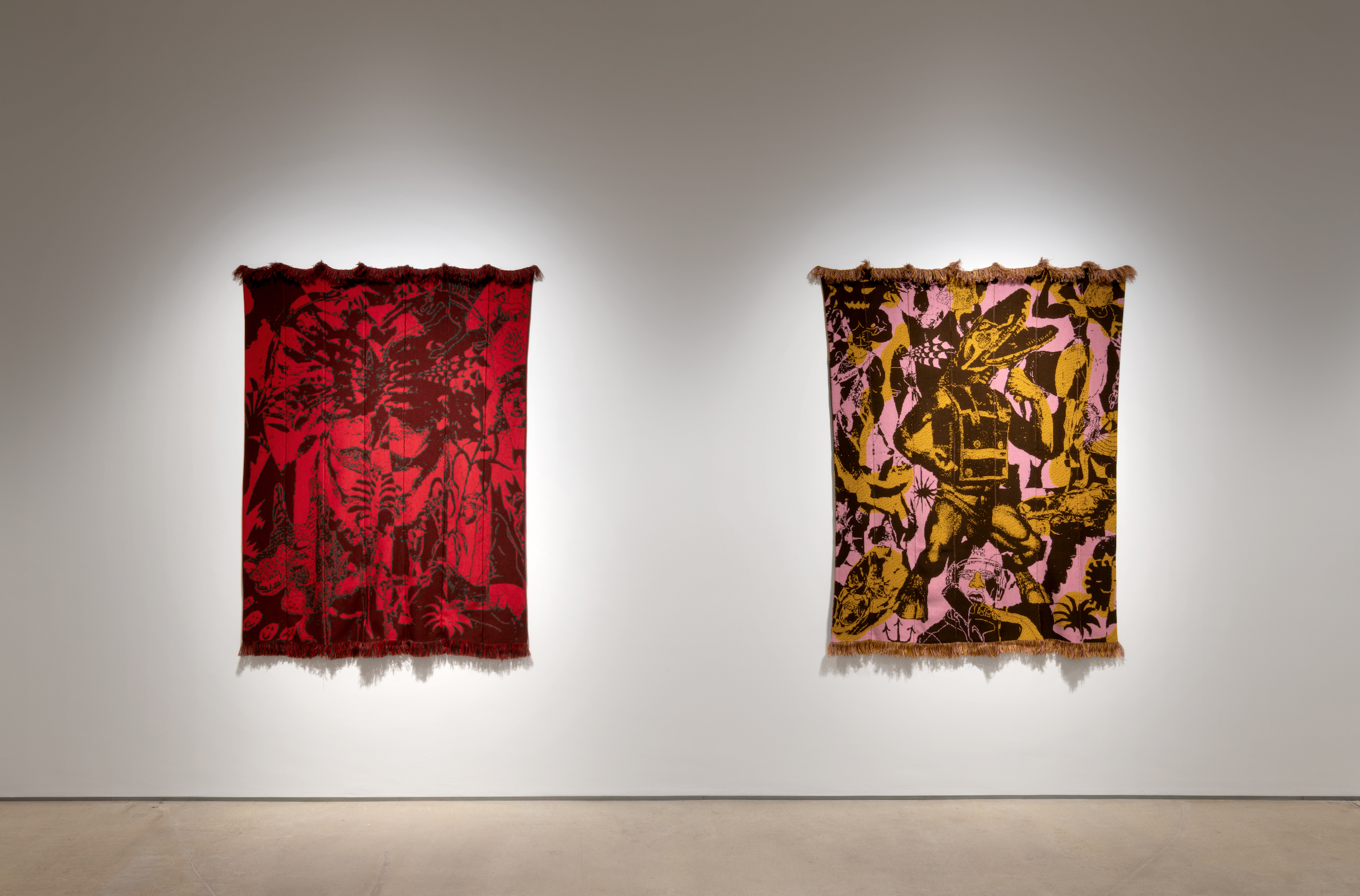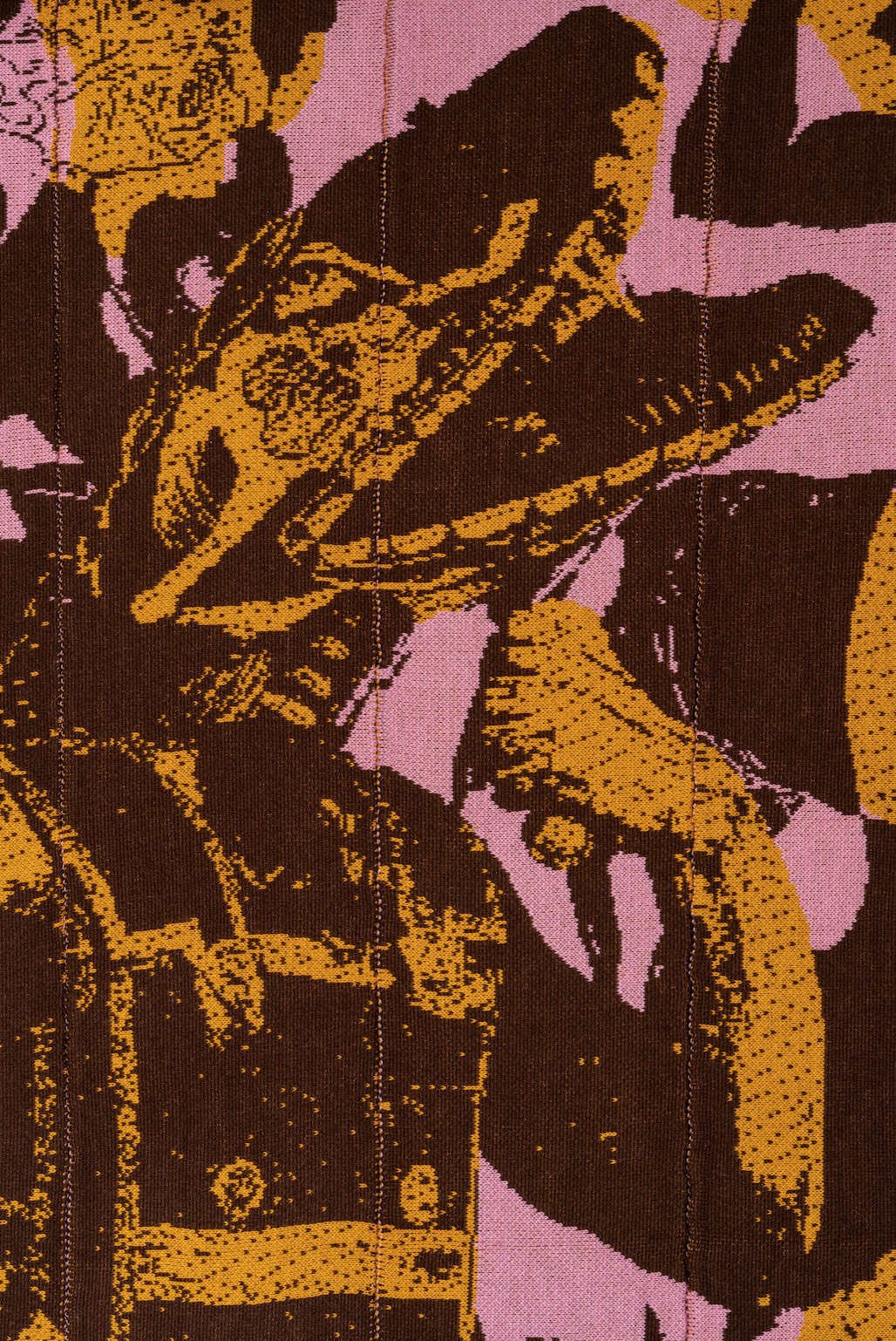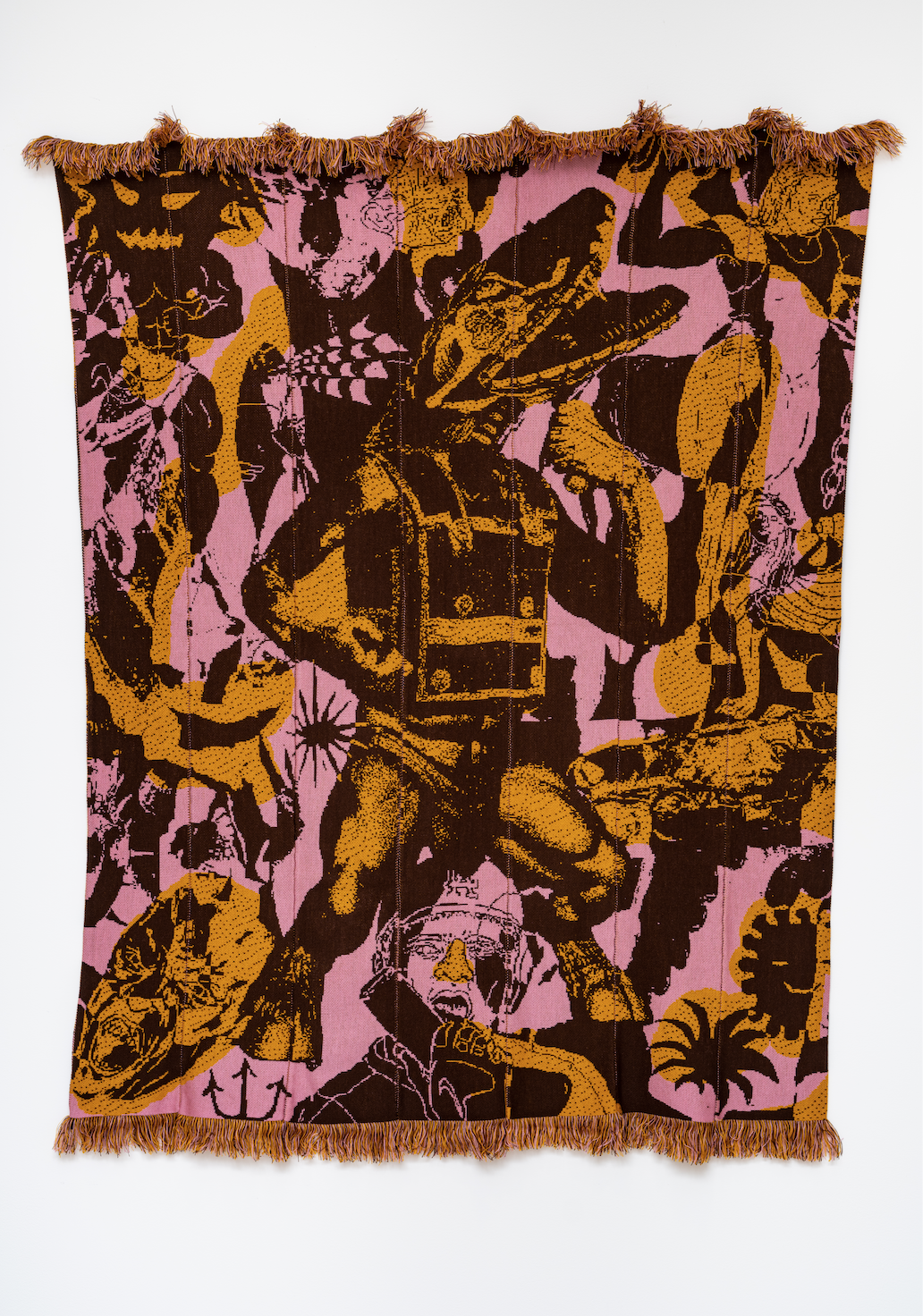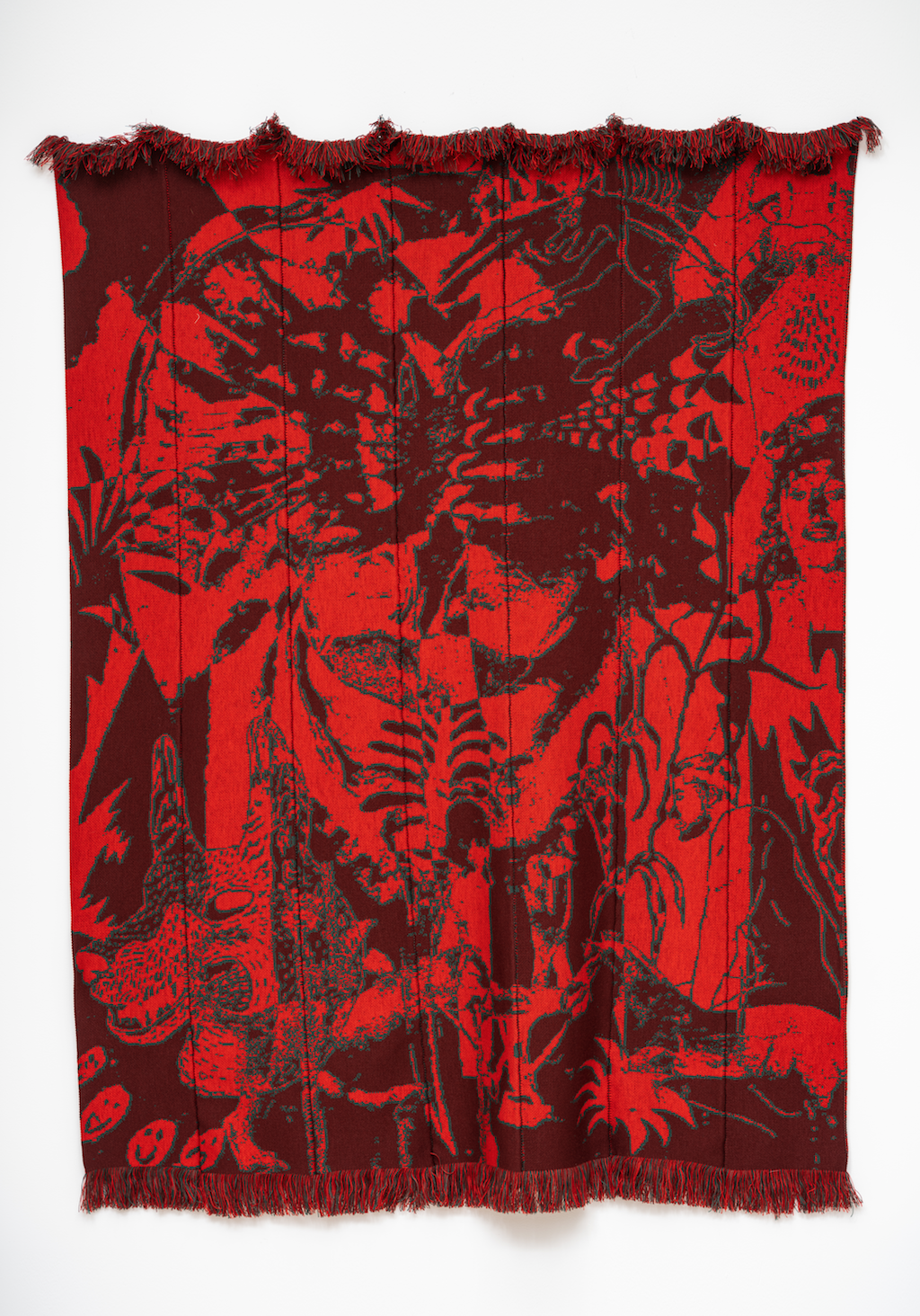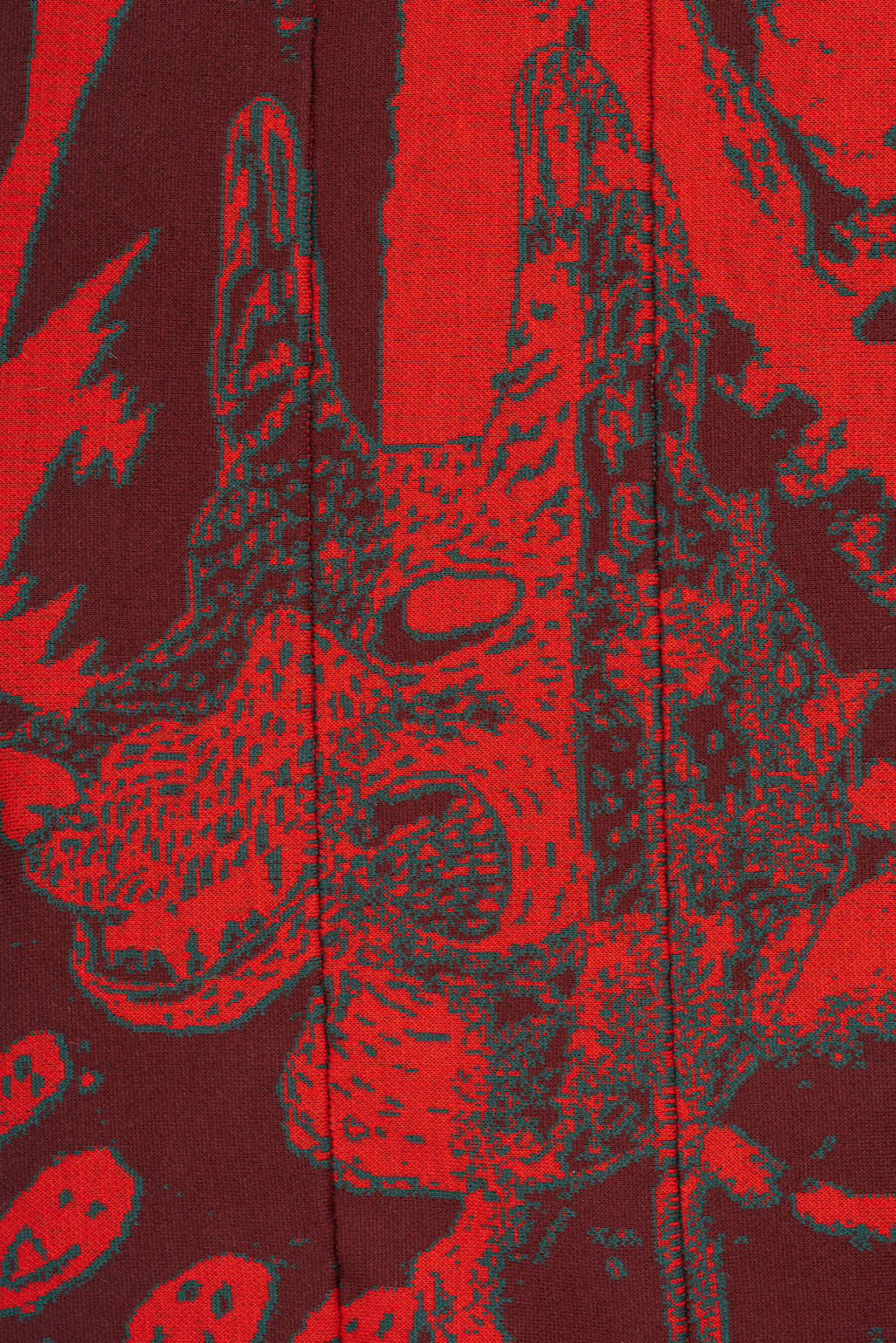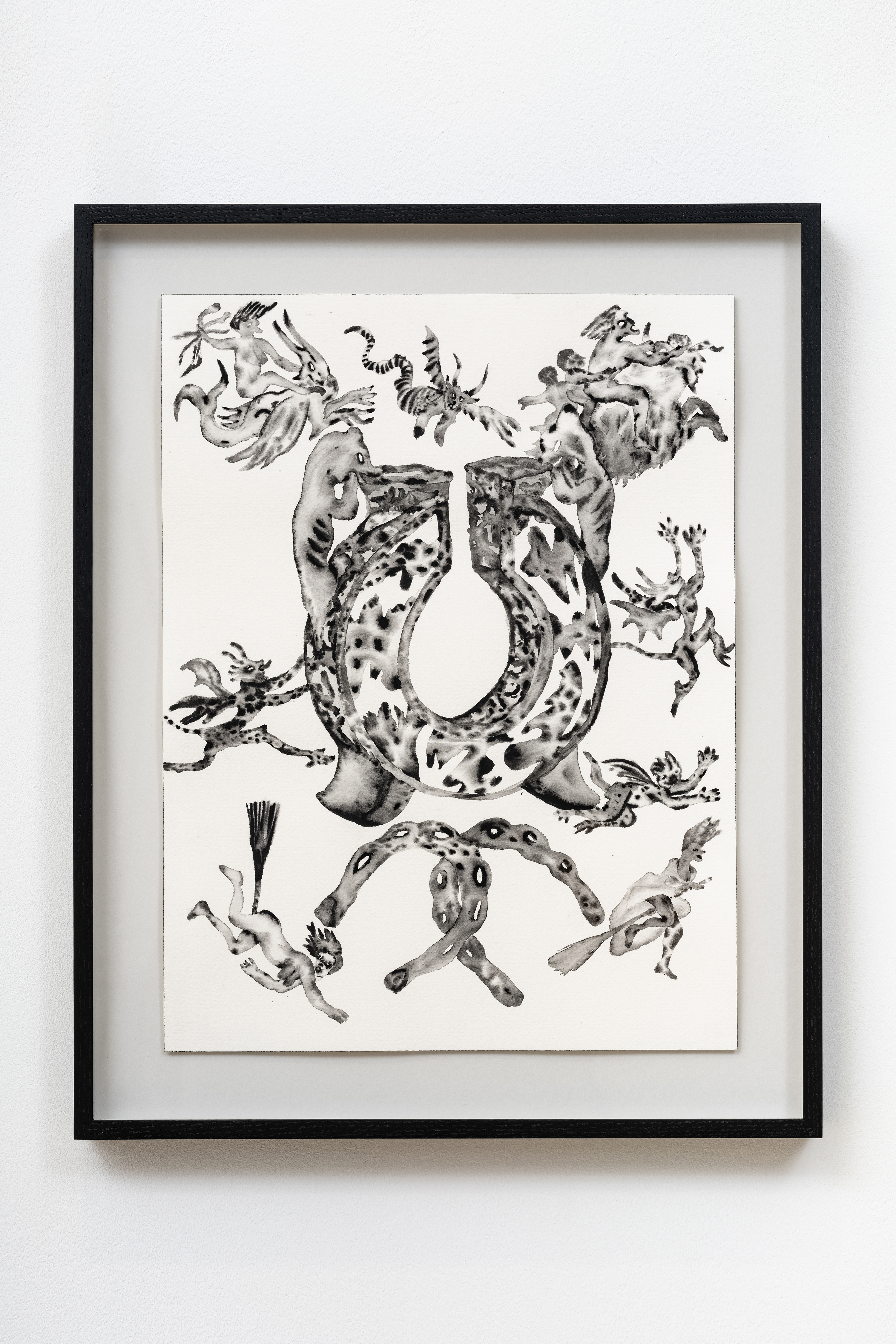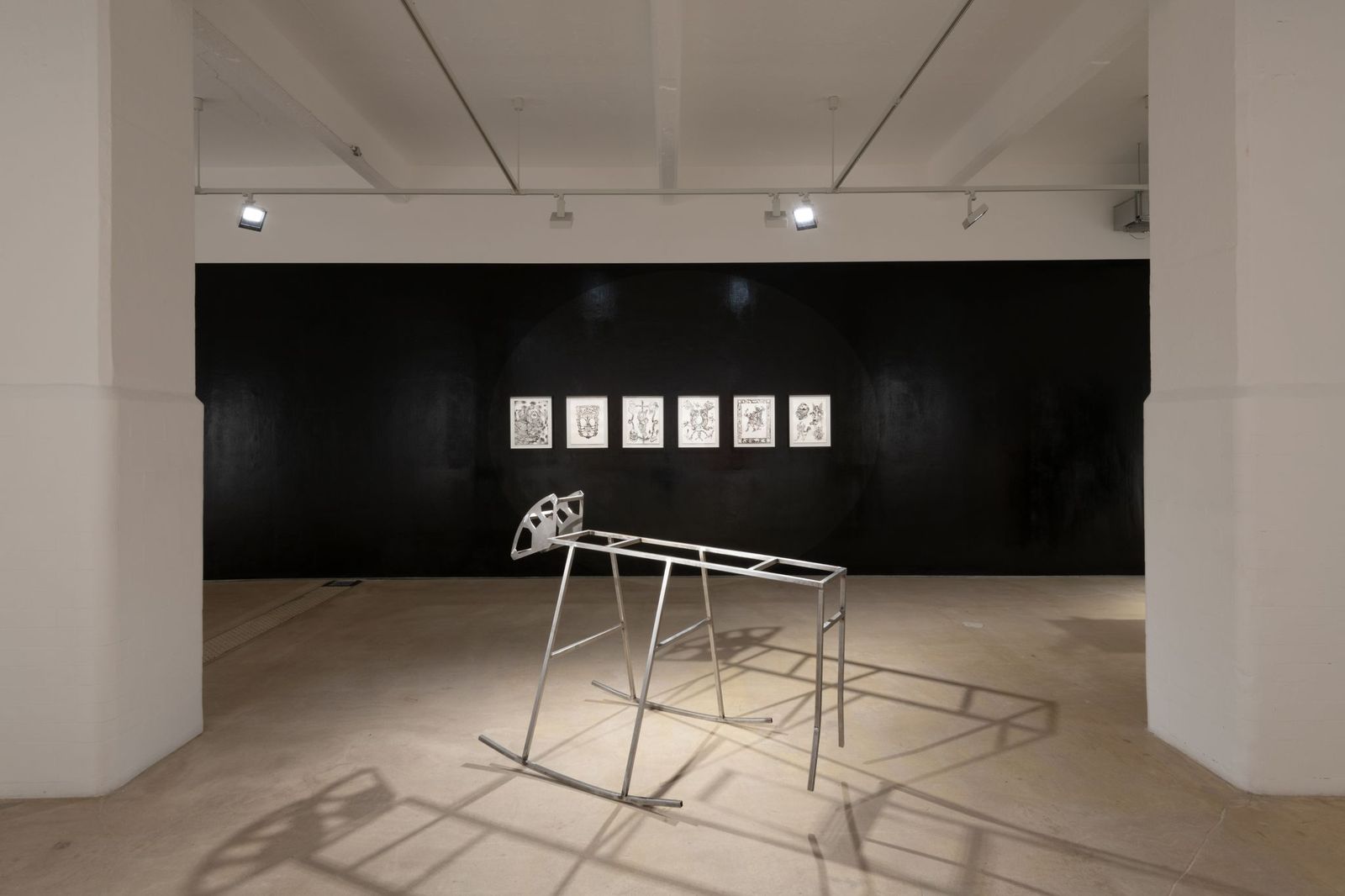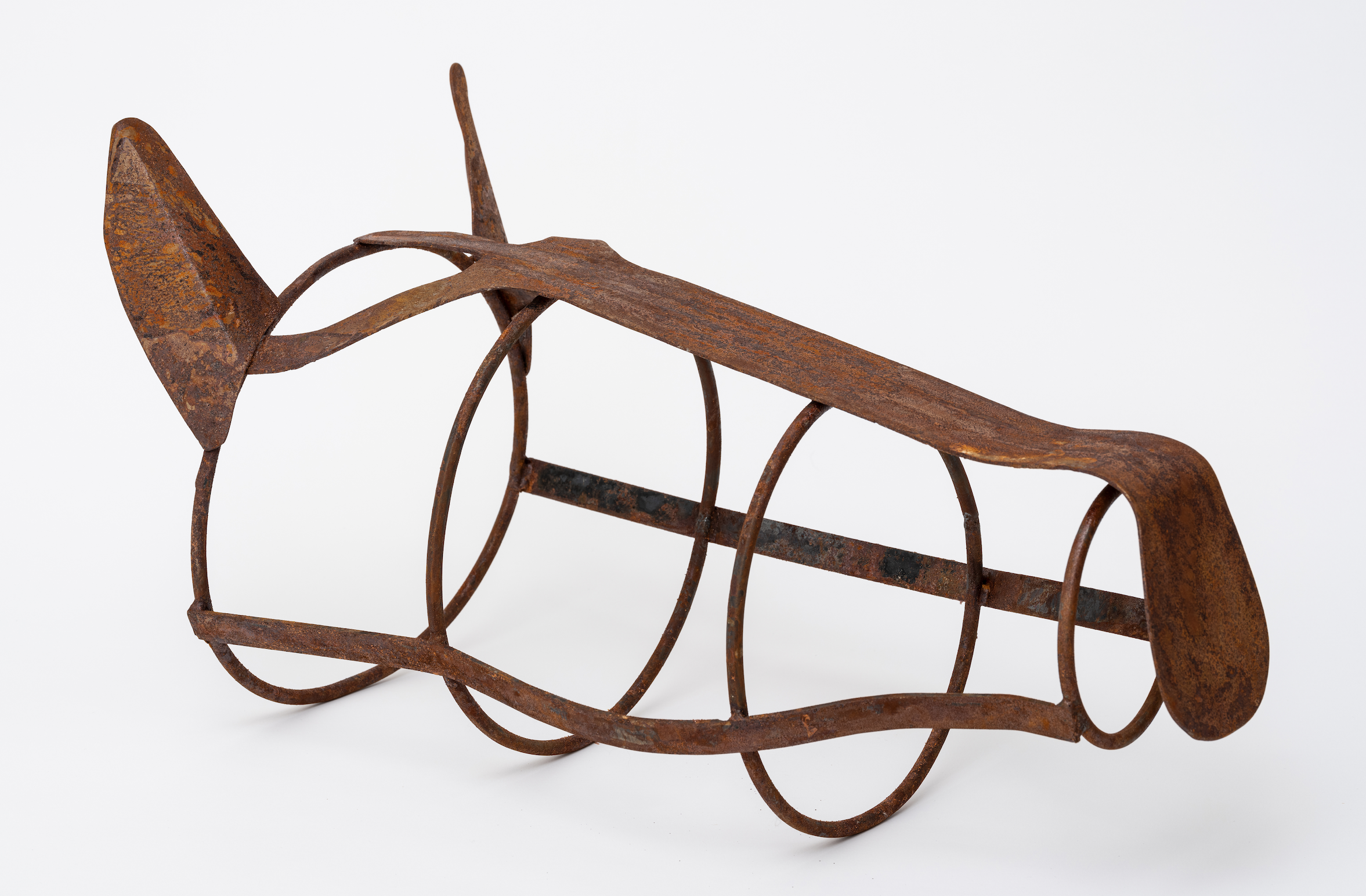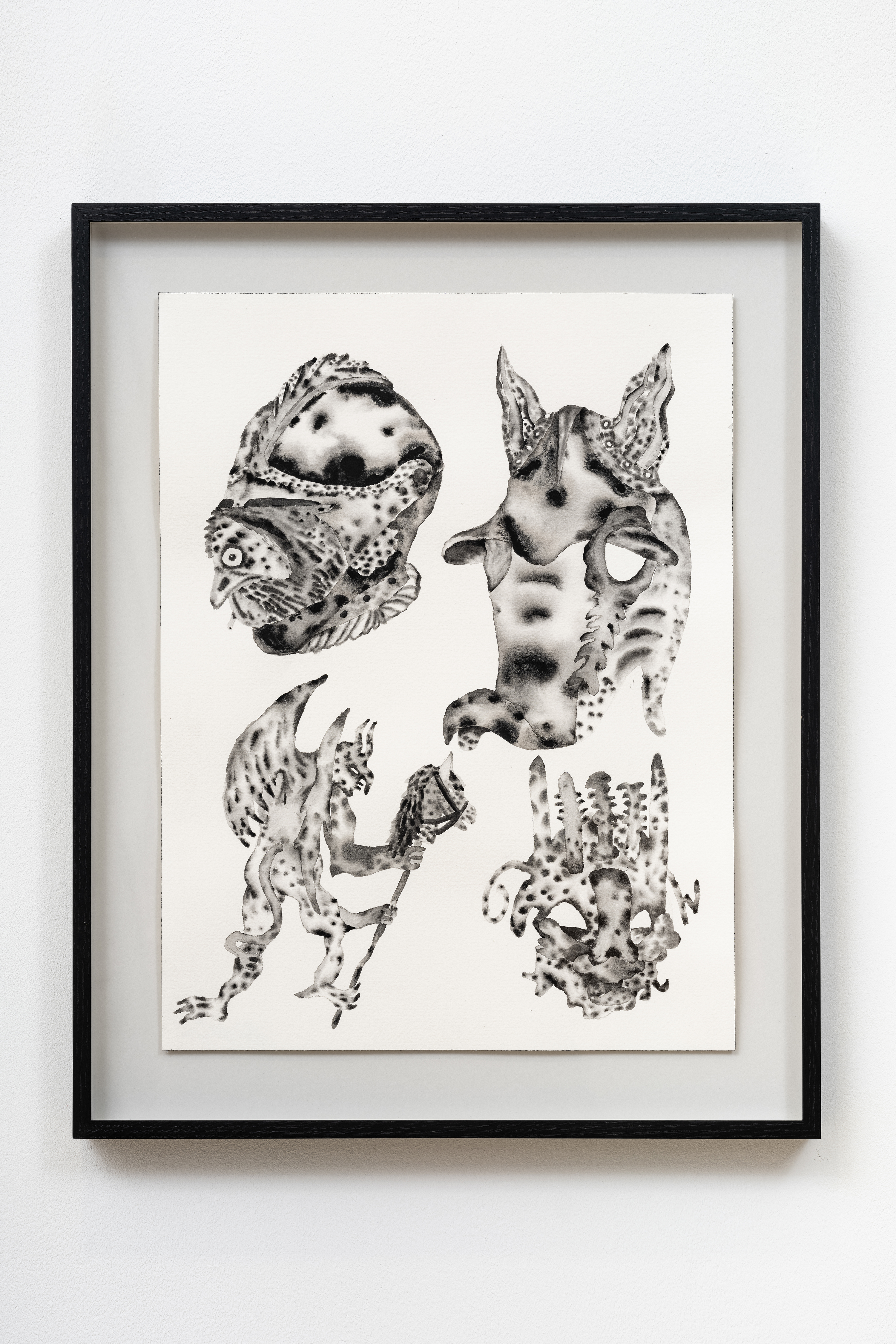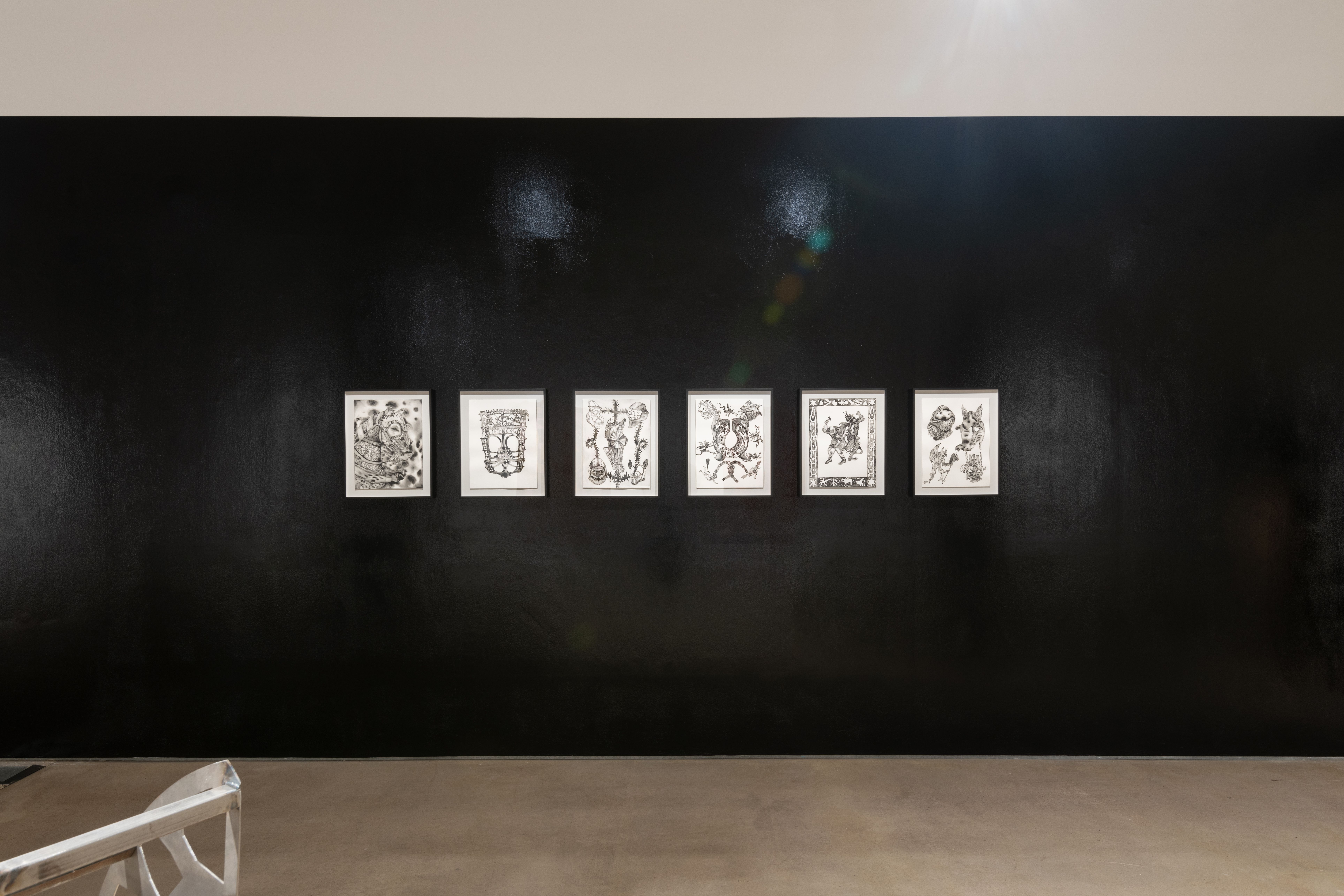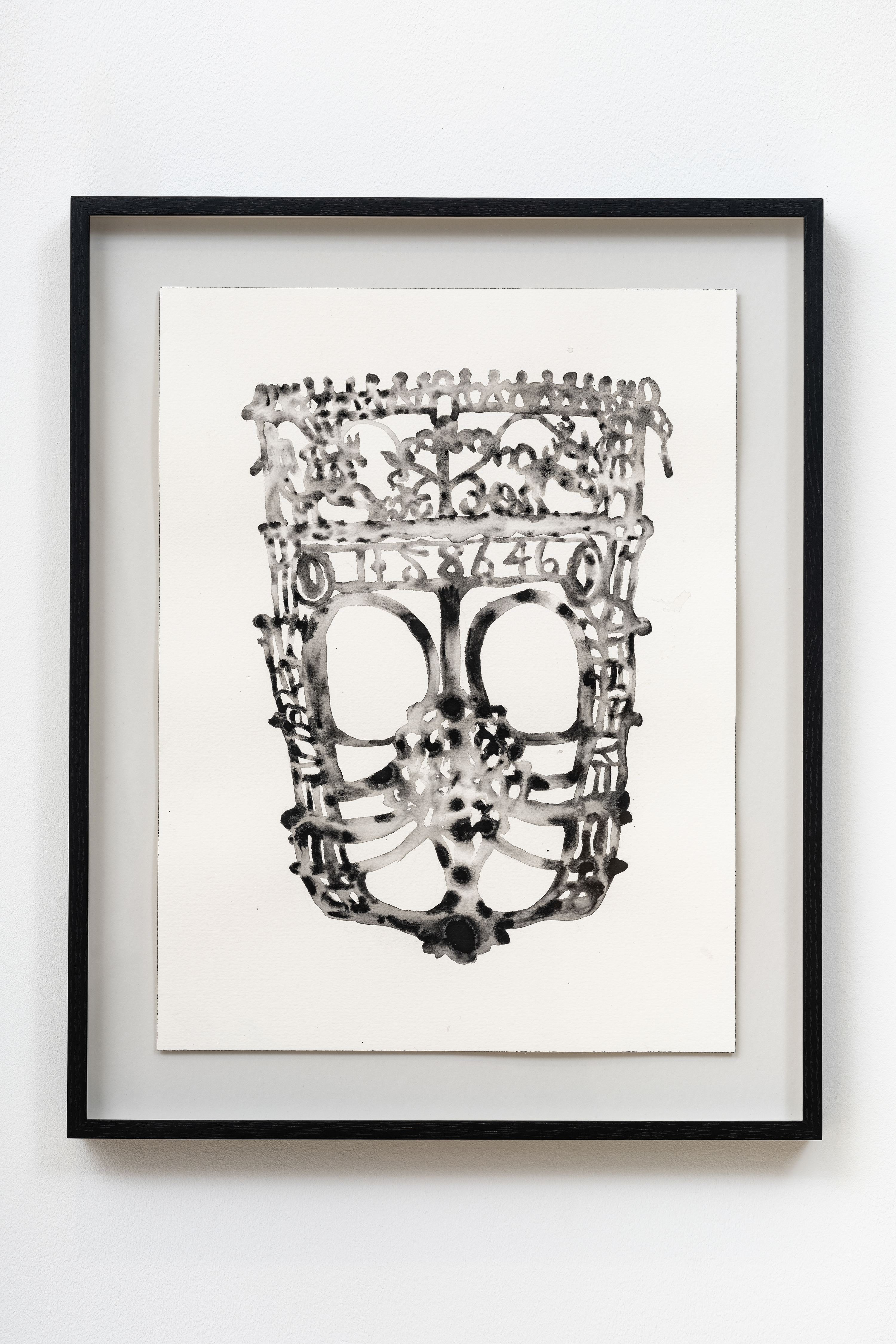“Oil and Water” takes the American cities of Dallas, Texas and Los Angeles, California as a starting point to explore the perpetuating mythologies that are entrenched in both places and the United States at large.
Spending his formative years in the two cities, Wielebinski explores their personal relationship to the places that shaped his identity and personhood. The title and concept for the show is drawn from how the cities came to be – through the mining of oil in Texas and the syphoning of water from the valleys in California. Characteristic of Wielebinski’s multifaceted practice, Oil and Water exhibits works across a range of mediums, which rethink and expand on the totemic potential of iconographies. They explore the symbolism of horses as a starting point – often seen as representative of machismo, cowboys, the possibilities of “going west,” and rugged individualism in the white American imagination. Here, Wielebinski creates rocking horses, which serve to undermine these tropes by presenting them as childlike, impotent, with a repetitive function that complicates these narratives by speaking to our obsession with dominating nature, the mundanity and everyday cruelty of American life, and the impulse to repeat the same histories over again. Oil and Water highlights the contradictory nature of symbolism and invites us to question repeating histories by presenting possibilities for a new reality through acknowledgment of our past.
![]()
![]()
![]()
![]()
![]()
![]()
![]()
![]()
![]()
![]()
![]()
![]()
![]()
![]()
Spending his formative years in the two cities, Wielebinski explores their personal relationship to the places that shaped his identity and personhood. The title and concept for the show is drawn from how the cities came to be – through the mining of oil in Texas and the syphoning of water from the valleys in California. Characteristic of Wielebinski’s multifaceted practice, Oil and Water exhibits works across a range of mediums, which rethink and expand on the totemic potential of iconographies. They explore the symbolism of horses as a starting point – often seen as representative of machismo, cowboys, the possibilities of “going west,” and rugged individualism in the white American imagination. Here, Wielebinski creates rocking horses, which serve to undermine these tropes by presenting them as childlike, impotent, with a repetitive function that complicates these narratives by speaking to our obsession with dominating nature, the mundanity and everyday cruelty of American life, and the impulse to repeat the same histories over again. Oil and Water highlights the contradictory nature of symbolism and invites us to question repeating histories by presenting possibilities for a new reality through acknowledgment of our past.
